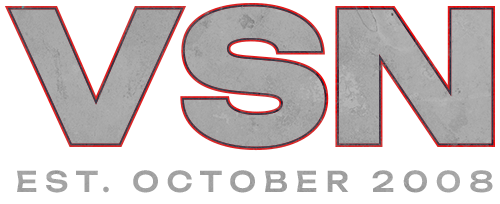STATE COLLEGE, Pa. -- One of the puzzling questions in the ever-evolving Penn State sexual abuse scandal is why trustees removed Joe Paterno as head coach late Wednesday but, for the time being, assistant coach Mike McQueary is still employed.
Penn State officials announced late Thursday that McQueary would not be at Saturday's game against Nebraska because of "multiple threats" made against him. On Friday, he was placed on administrative leave.
How is McQueary hanging on? One theory is that the Penn State receivers coach and recruiting coordinator may hold whistle-blower protection status under Pennsylvania state law. McQueary was a 28-year-old graduate assistant in 2002 when, according to his grand jury testimony, he witnessed Jerry Sandusky committing sexual assault on a young boy in the showers of the Lasch Football Building. Horrified, McQueary said he left the building, called his father and the next day told Paterno what he saw.
McQueary, a former Penn State quarterback, has faced immense criticism this week for not calling police, interrupting the act or, in the nine years since he was an eyewitness, demanding answers about why Sandusky was never charged. But Stephen Kohn, the executive director of the National Whistleblowers Center in Washington, D.C., believes reporting the incident to Paterno alone could be enough to protect McQueary under the state's whistle-blower law.
"If they were to fire him because he made the disclosure and reported it, then he would be protected," Kohn said. "Just because he's unpopular, just because people blame him for having the head coach dismissed, he can't be fired for any of that."
That might help explain why Paterno spent Thursday on a couch in his home and McQueary was still at the practice facility helping players prepare for Nebraska. As Kohn explained it, even though McQueary was the actual witness, the level of reporting responsibility for a then-28-year-old graduate assistant and a legendary head coach is far different.
"You have to look at where the employee is on the totem pole," Kohn said. "There are different expectations at different levels. A manager versus an employee. A student versus a teacher. It's just how it goes. The last thing you want to do is create an environment where people don't even tell the supervisor."
According to the Ethics Resource Center, six in 10 employees who viewed misconduct reported it in 2010. Seventy-five percent of those told their direct manager or another supervisor. Ellen Dannin, a Penn State law professor who specializes in labor and employment law, was unsure whether McQueary would be protected as a whistle-blower but agreed that he would be held to a different standard than Paterno, even though he witnessed the act.
"Joe Paterno, 10-11 years ago, was an incredibly powerful guy," Dannin said. "What would have happened to him if he would have taken it further? If he would have insisted on answers? Nothing. It would have been resolved. What did [Paterno] have to lose versus what did [McQueary] have to lose? There's no comparison. [Paterno] could have safely ended this."
Of course, there are those who will say that McQueary could have ended it as well, by stopping Sandusky in the act or by calling the police, either anonymously or not. But at this point, it isn't believed that that happened.
"If [McQueary] is a low-level person, you can understand why he might be stunned in that moment," she said. "And people don't act their best when they're taken by surprise."
Charges were not filed against Sandusky then. And in 2004, McQueary was promoted to receivers coach. Not until 2009 did a grand jury begin its investigation of Sandusky.
"In time, the misconduct metamorphasized from the child abuse and rape to the failure of management to disclose and correct," Kohn said of the allegations against Sandusky. "Then the question becomes: Should he have blown the whistle on the head coach for not taking action?
"Anyone who had responsibility was under a duty to take corrective action. They can't sit on it. If you sit on it, you're part of a cover-up. And then everything changes."
